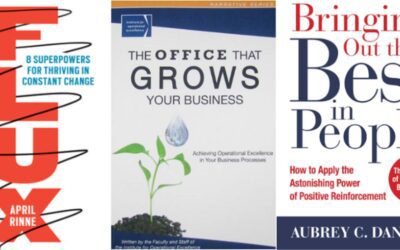Did you know that Oregon products are in high demand around the world? Yet many manufacturers who are curious about the possibility of finding new audiences for their products can feel daunted by the task of exporting.
Support Available Through Business Oregon
Thankfully, small and mid-sized manufacturers can reap the benefits of exporting with the support of Business Oregon. Business Oregon is the state’s economic development agency, devoted to serving businesses and improving our economy. Their Global Trade Specialists work with hundreds of manufacturers to help them export, and they offer funding to cover market research, tradeshow visits, foreign buyer meet-ups, and marketing costs.
Ear Trumpet Labs
Phillip Graham, Owner and founder of Ear Trumpet Labs has taken advantage of funding and support from Business Oregon to export his microphones. Founded in Portland, Oregon Ear Trumpet Labs has grown over the past 10 years to a small workshop with three craftspeople building beautiful microphones for customers worldwide. In the interview below, he shares his experience with exporting. (Interview edited for length)
Learn More about Ear Trumpet Labs
What interested you in exporting?
Initially, we wanted any customer we could get! We are a small craft manufacturer with a very particular product in a specific market, so found customers mainly through word of mouth. Touring musicians using our product connected us with individuals in Europe and Canada, as the music community is international. We were initially doing entirely direct sales, and selling internationally didn’t involve anything more than finding the least expensive shipper. Our entry into exporting was simple.
What is your current exporting model?
Resellers now come to us rather than vice versa. Our very first reseller, domestic or international, was in London. They approached us because they’d had inquiries from customers, and that has remained our model. We work with resellers more internationally than domestically, because most people are more comfortable dealing with local retailers. This also makes language facility simpler and allows us not to have to deal with international shipping, duty, and taxes. International reseller and direct combined makesup about 30-35% of our business.
Do you work with distributors?
Our pricing structure doesn’t have room for the margins most distributors need, so we don’t generally work through distributors. Instead, we work directly with small retailers. In general, we don’t give exclusive territories, but we are conscious of not working with someone’s direct competitor in a market, at least until our first partner has a chance to establish themselves with the brand.
What have been your lessons learned?
Large-scale mostly online retailers are not a good fit for us.
Early on we worked with the second-largest European musical instrument and gear retailer, not realizing that they were primarily online and aggressive with pricing. They even had automated pricing discounts that their algorithms controlled and claimed they couldn’t do anything about it. This retailer bought a fair amount of product from us, but other retailers in Europe disliked them so much that we stopped working with them.
We’ve been more cautious in vetting resellers since then. Obviously, for some manufacturers, the opportunity to increase volume might be great, but preserving our brand reputation and our margins was and is much more important to us.
What are the benefits of exporting?
Through exporting we have been able to even out our demand cycles. There are times when domestic demand seems sluggish, and rounds of large orders from our international retailers pick up the slack, and more.
What challenges do you face?
There are some issues with direct sales, mostly in the area of shipping. We must ensure our customers understand that taxes will be assessed and collected separately by the shipper. Also, we have a very generous warranty and repair policy, including paying to ship for repair returns. That increases the overall overhead of international sales.
What cautions do you as a manufacturer take when entering new markets?
Since we have done it long enough, adding new resellers in Canada, Australia and Europe is smooth. We know what to expect, and our agreements address all their questions. In other new markets, we’re more cautious. We’ve had a reseller in Japan for several years, and did some translation of our materials to support that. This is an area for opportunity.
We had an extensive go-round with a large multinational brand as a distributor through a musician contact, but ultimately, they demanded exclusivity and we didn’t want to give them that. We’ve been approached by a couple of Indian distributors that didn’t feel like a good fit. Our new Chinese distributor we feel comfortable with because they specifically work with boutique craft music manufacturers. We were able to speak with a few luthiers we know that work with them and gave them high marks.
Learn more about Ear Trumpet Labs Resellers Here
Thank you Phillip for sharing your story!
Quick Exporting Tips from Business Oregon
If you are a manufacturer interested in exporting, Business Oregon recommends the following:
- Do your research – Business Oregon and its partners can support you finding an international market with demand for your product
- Don’t jump into agreements quickly – Vet your potential partners to ensure they are a good fit
- Understand you may have to make some changes to make your product appealing to a specific market.
- Understand the import taxes, tariffs, and duties before establishing your pricing structure.



